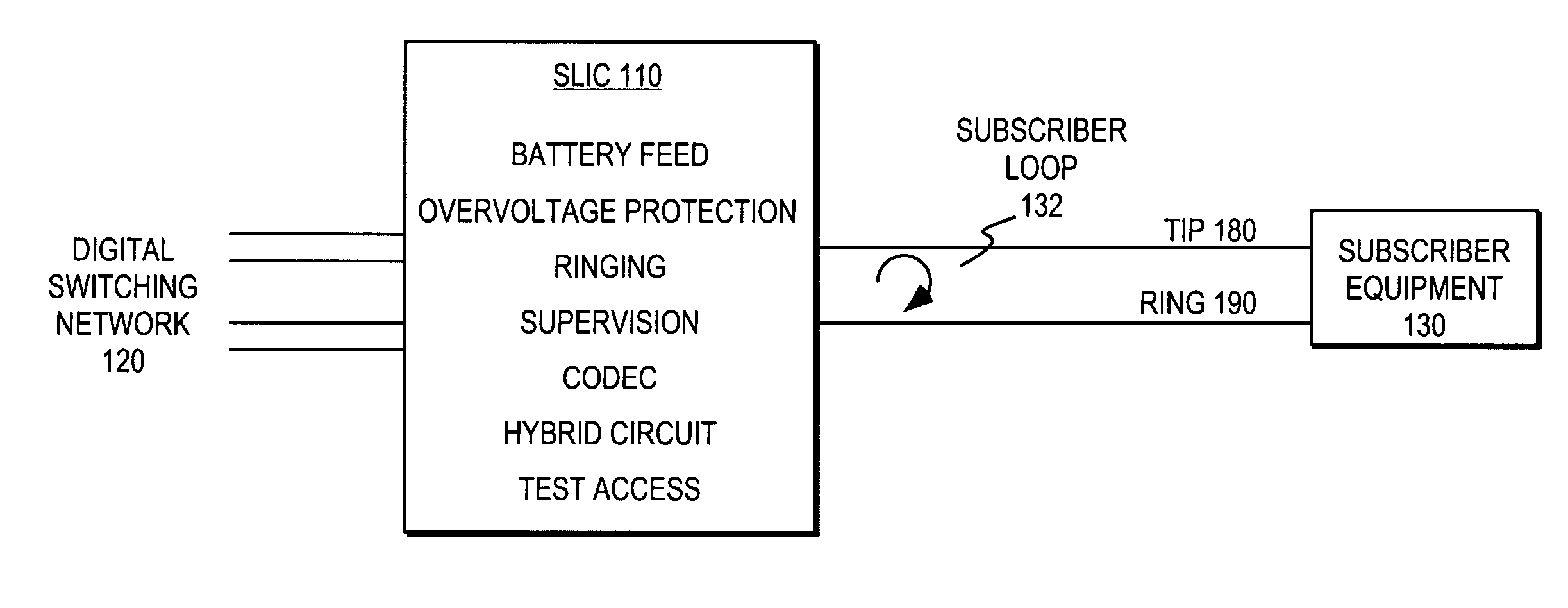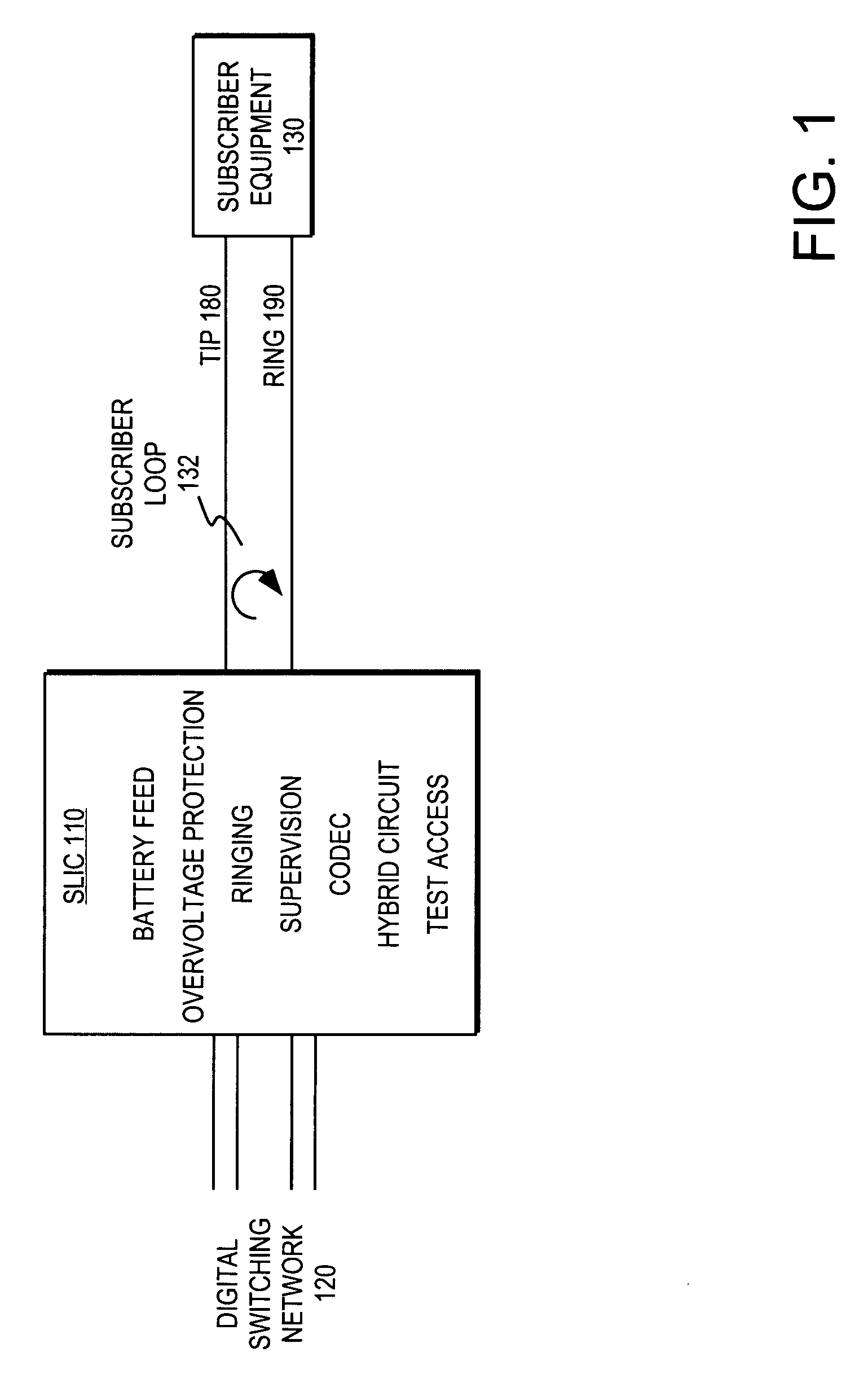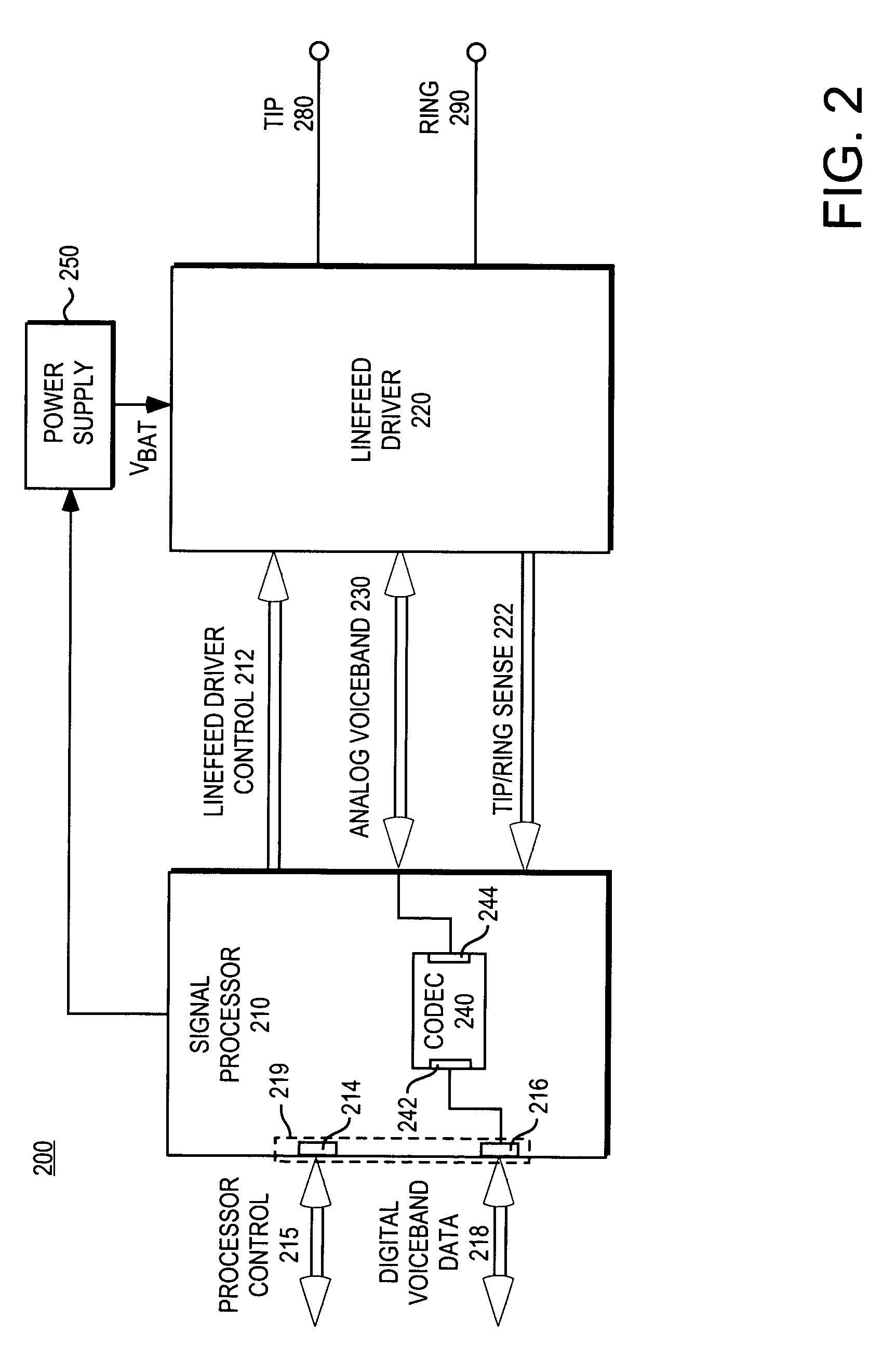Direct drive for a subscriber line differential ringing signal
a direct drive and subscriber line technology, applied in the field of subscriber line interface circuitry, can solve the problems of unbalanced and balanced ringing, unbalanced ringing, unbalanced ringing,
- Summary
- Abstract
- Description
- Claims
- Application Information
AI Technical Summary
Benefits of technology
Problems solved by technology
Method used
Image
Examples
Embodiment Construction
FIG. 1 illustrates functional elements of one embodiment of a subscriber line interface circuit (SLIC) 110 typically associated with plain old telephone services (POTS) telephone lines. The subscriber line interface circuit (SLIC) provides an interface between the digital switching network 120 of a local telephone company central exchange and a subscriber loop 132 including subscriber equipment 130.
The subscriber loop 132 is typically used for communicating analog data signals (e.g., voiceband communications) as well as subscriber loop “handshaking” or control signals. The analog data signals are typically on the order of 1 volt peak-to-peak (i.e., “small signal”). The subscriber loop control signals typically consist of a 48 V DC offset and an AC signal of 40-140 Vrms (i.e., “large signal”). The subscriber loop state is often specified in terms of the tip 180 and ring 190 lines of the subscriber loop.
The SLIC is expected to perform a number of functions often collectively referr...
PUM
 Login to View More
Login to View More Abstract
Description
Claims
Application Information
 Login to View More
Login to View More - R&D
- Intellectual Property
- Life Sciences
- Materials
- Tech Scout
- Unparalleled Data Quality
- Higher Quality Content
- 60% Fewer Hallucinations
Browse by: Latest US Patents, China's latest patents, Technical Efficacy Thesaurus, Application Domain, Technology Topic, Popular Technical Reports.
© 2025 PatSnap. All rights reserved.Legal|Privacy policy|Modern Slavery Act Transparency Statement|Sitemap|About US| Contact US: help@patsnap.com



